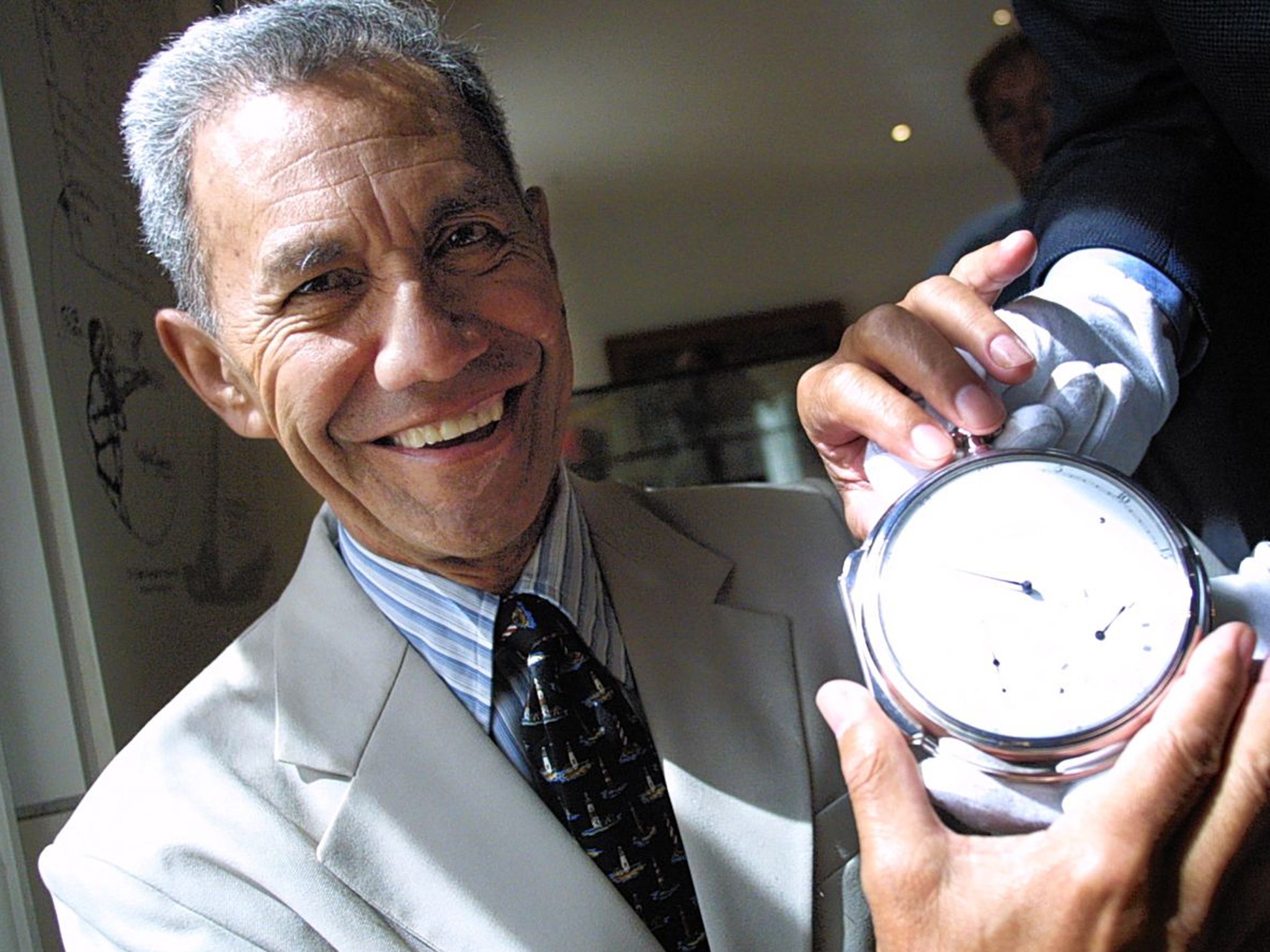Tom Christian: Island leader who connected Pitcairn with the world

Tom Christian had only a volcanic hill two miles long by a mile wide in the middle of an ocean to ride his Honda motorcycle on, but in his veins there coursed a whole history of 200 years of British worldwide power. The energy that built an empire flipped over in his family's case into naval mutiny, but Tom Christian's great-great-great-grandfather Fletcher Christian, leader of the rebels in 1789 on His Majesty's Armed Vessel Bounty, would have recognised his descendant's fearlessly independent cast of mind.
Tom Christian's MBE from the Queen for services to the Pitcairns, and his law-abiding attitudes, might nevertheless have surprised Acting Lieutenant Christian, who thrust his captain, Lieutenant William Bligh, adrift in a launch and nine months later brought Bounty, with crewmates and Tahitian girlfriends, to the four islands of which Pitcairn, a British colony since 1838, is the second-biggest, 3,000 miles from New Zealand and 4,000 from Panama.
Six generations on, Tom Christian served as a magistrate and for 40 years was Governor's representative on the Pitcairn Island Council. In 2004, when charges of rape and sexual assault were brought against a number of Pitcairn men, he opposed islanders who said "breaking girls in" early was a Polynesian custom, and supported the men's being arraigned before the Pitcairn Supreme Court, which was specially convened under English law on the island.
The accused men included Tom Christian's relation Steve Christian, the islands' then Mayor, who was eventually convicted of five rapes. After the trial Tom Christian was shunned for years by some islanders. But long before the trial, which attracted attention from around the globe, he was already the islander who connected Pitcairn with the values and habits of the outside world.
His daily duties took him with his Honda 870ft up a rough red track to Taro Ground, where Pitcairn's radio transmitter stands. It was put there by New Zealand soldiers during the Second World War for naval communications, and he resolved as a small boy to learn how to use it. He left the island at 17 to do so, and trained in New Zealand from 1952-55, a stay during which he saw cars for the first time.
He was to become Pitcairn's richest native inhabitant, licensed as a radio operator since 1957 and earning NZ$10,000 a year for his service as radio officer of Radio ZBP, "the Voice of Pitcairn". He had the job of making daily reports to the island's administration, located in Fiji until Fijian independence in 1970, and thereafter in Wellington in New Zealand. The reports were made in Morse code until the 1980s brought a radio telephone.
Christian was also a well-known short-wave radio ham, VP6RC/VR6TC, exchanging messages from shore to ships passing on the ocean sea routes, and calling up fellow radio enthusiasts as far away as the US using minimal power from a generator on the island that then ran for only nine hours a day. In recent years he and his wife Betty, whom he married in 1966, moved into the computer age with a website promoting tourism to the island and produce including Pitcairn stamps, baskets, curiosities carved of wood, and honey. The Pitcairn government also offers a distinctive internet domain name," .pn", for sale.
He made several speaking tours to the US, talking about the mutiny and Pitcairn's history. Soon after their marriage he and Betty travelled to California, where they worked for seven months for the radio station of the US-based Seventh Day Adventist Church, of which he was an elder, and to which the Pitcairners converted from Anglicanism in the 19th century. The Isle of Man, from which the Christian family originated, invited him to be a guest of honour at Tynwald Week in 2002.
He is credited with having imported the first battery lights and refrigerators to Pitcairn, as well as motorcycles. In the 1950s he dived for the American National Geographic magazine to bring up nails, wood and fittings from Bounty, still lying in the bay where the mutineers destroyed her. In 1974 he used the radio to appeal for fuel for Pitcairn when Middle Eastern oil producers disrupted supplies, and got some from various sources who heard his broadcast.
Every day he also had to cultivate vegetables on several garden plots for sustenance, and maintain public works including road-surfaces and the aluminium, diesel-powered longboats that bring visitors ashore. The boats must pass through treacherous surf and over rocks, and every three months they go out to meet the airstripless colony's supply ship from New Zealand, anchored several hundred yards out to sea below Pitcairn's 500-foot cliffs.
Explaining why he chose to stay on this speck of red rock where he was born in 1935 – the year of Frank Lloyd's Hollywood film about the mutiny starring Clark Gable as Fletcher Christian – he said: "The advantage is freedom. You don't have to worry about locking doors. I can go down to the valley with my knife and cut bananas or go fishing whenever I want."
In 1971 Maurice Bligh, great-great-great-grandson of the Bounty's captain, paid a visit to Pitcairn, and the two became friends, meeting again in 2005. Tom Christian's own descent from Fletcher Christian was through Fletcher's son Thursday October, then his grandson Thursday October II, great-grandson Daniel, and great-great grandson Frederick, who was Tom's father.
Thomas Colman Christian: island councillor and radio officer: born Pitcairn 1 November 1935; MBE 1983; married 1966 Betty Warren (four daughters); died Pitcairn 7 July 2013.
Join our commenting forum
Join thought-provoking conversations, follow other Independent readers and see their replies
Comments